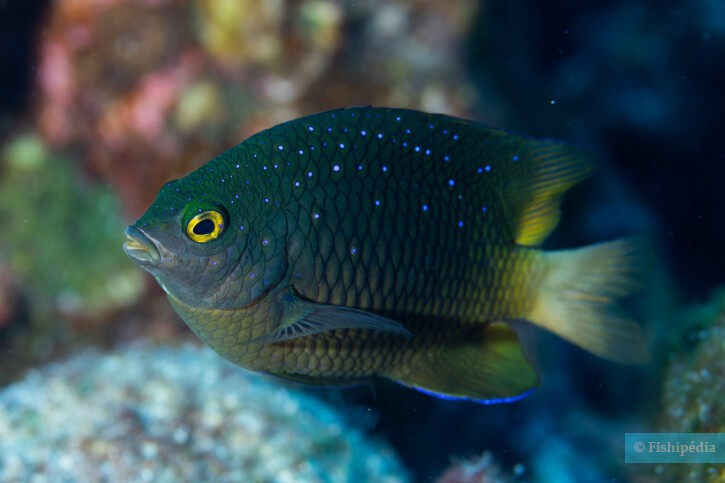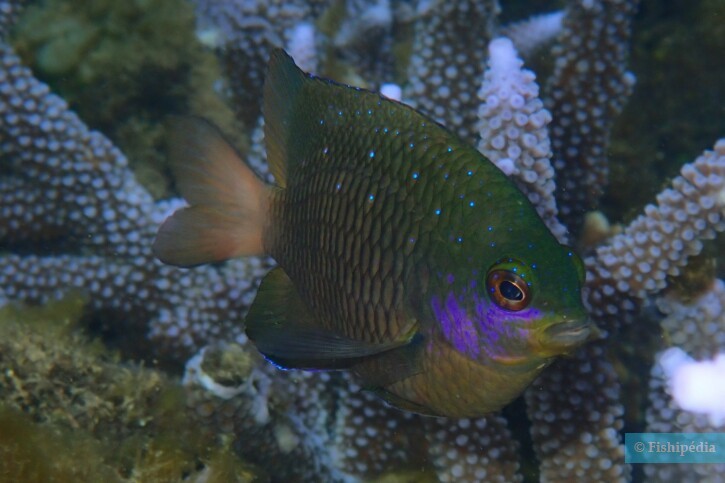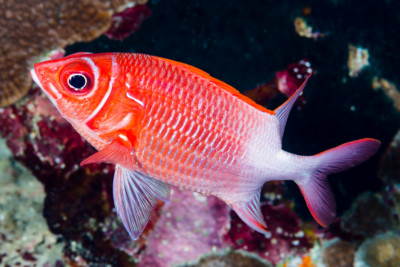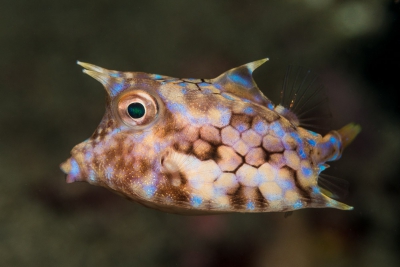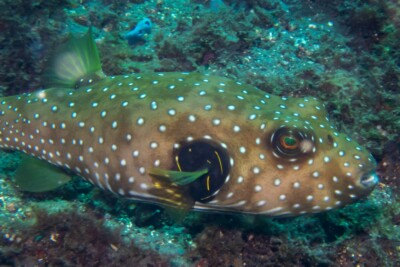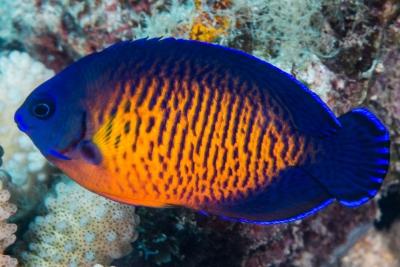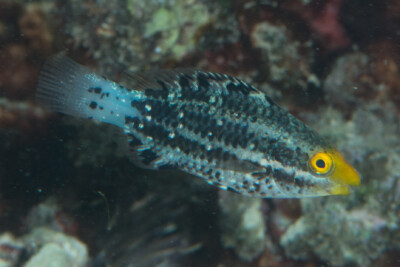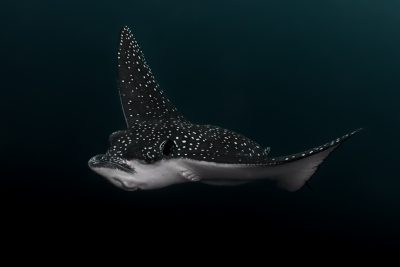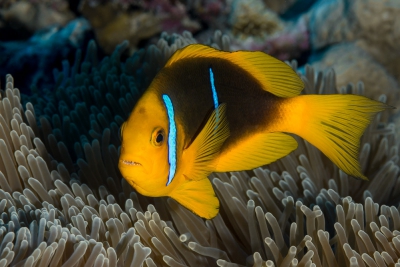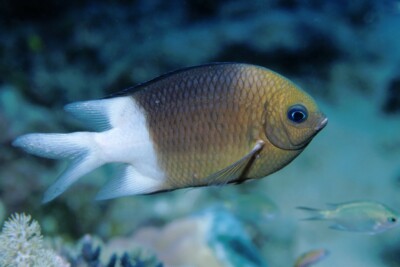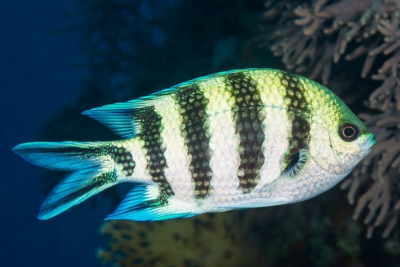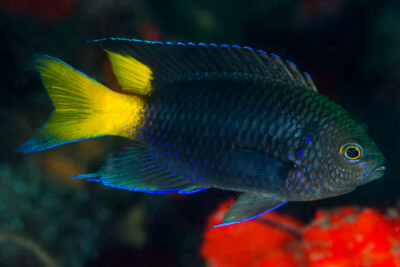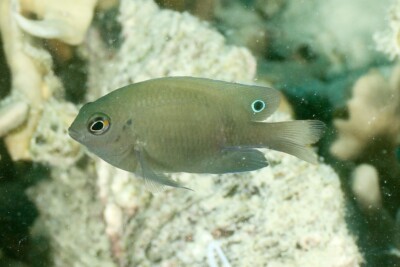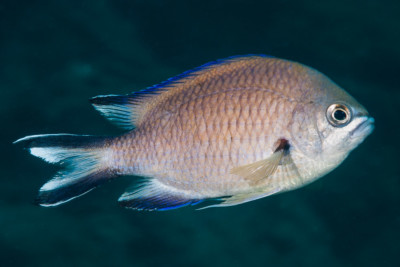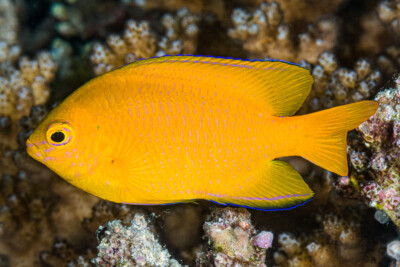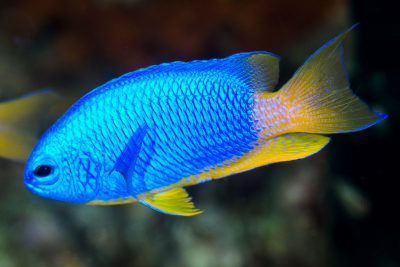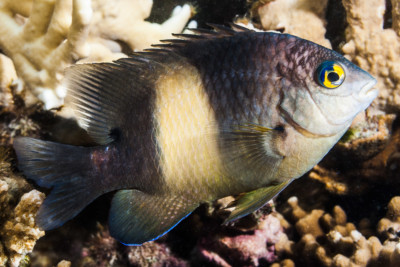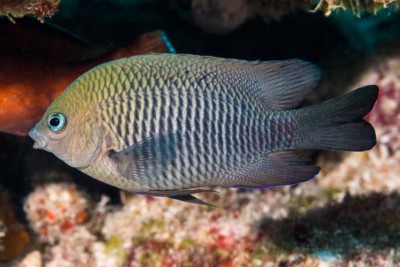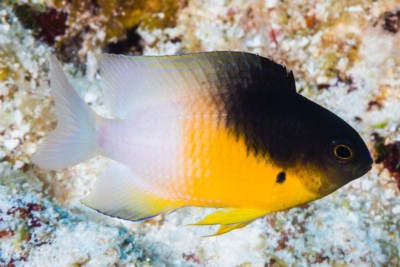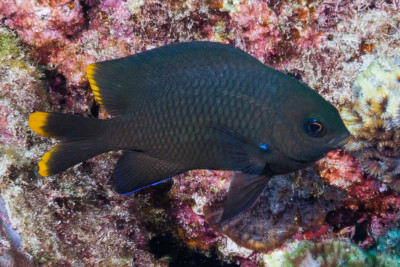Stegastes lacrymatus
| Scientific name | Stegastes lacrymatus |
|---|---|
| Descriptor | Quoy & Gaimard |
| Year of description | 1825 |
| IUCN category (World) | NE |
| Family | Pomacentridae |
| Genus | Stegastes |
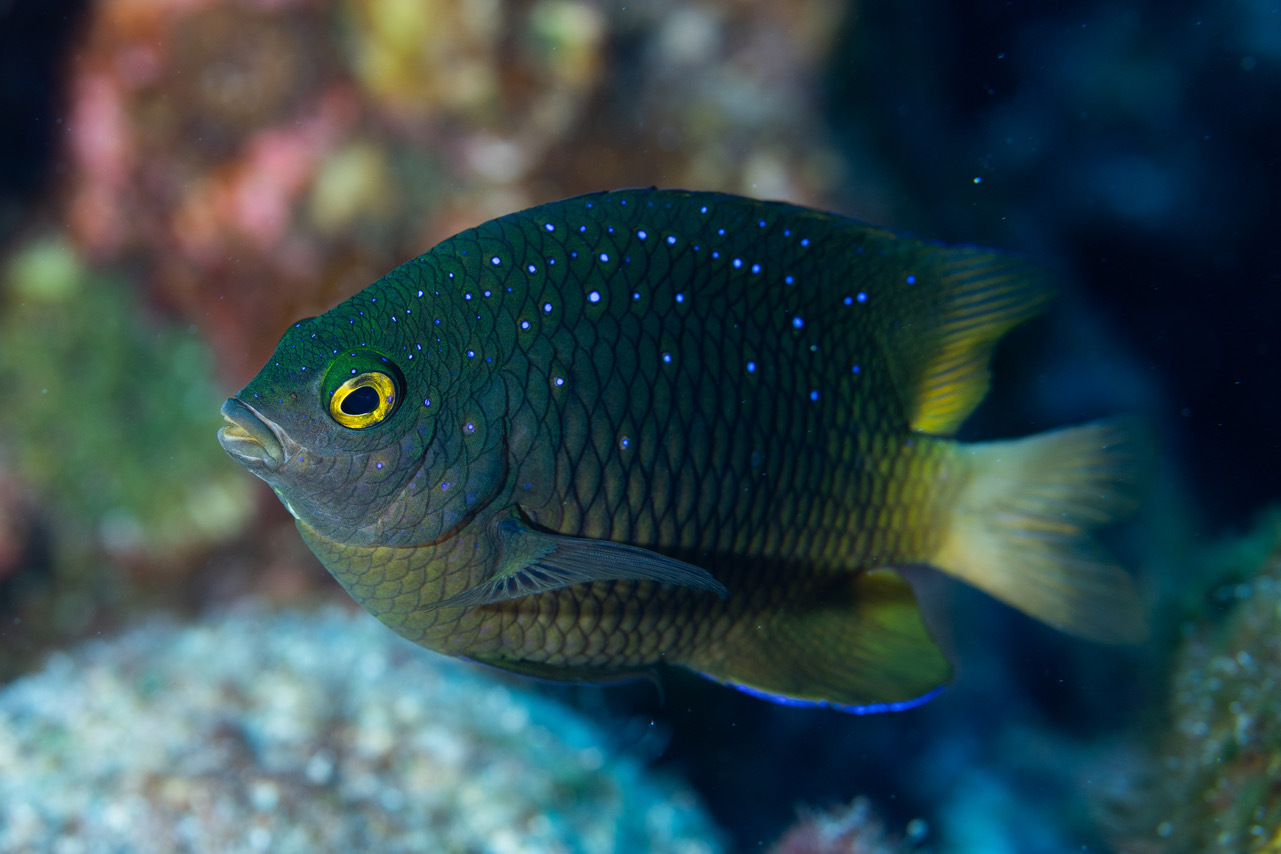

Introduction
Stegastes lacrymatus is a salt water fish.
This sheet is currently being prepared. The texts currently proposed come from our data model or are being drafted. To request priority for this content, you can write to us HERE.
Who is it?
Morphology
-
Average size8 cm
-
Maximum size10 cm
-
ShapeCircular
-
Patternponctuations
-
Average size8 cm
-
Maximum size10 cm
-
ShapeCircular
-
Patternponctuations
How to recognize This fish ?
Stegastes lacrymatus measures around 8 cm. The dominant males can however reach 10 cm. This fish is tricolore with a predominantly jaune, bleu and noir body. The also has bleu ponctuations.
Sexual dimorphism
The adult male is bigger than the female.
Behaviour & Life cycle
-
dietomnivorous
-
Sociabilityliving as a couple or alone
-
territorialYes
-
Way of livingdiurnal
Stegastes lacrymatus is a fish living as a couple or alone naturally found near the bottom. This species is omnivorous .
Stegastes lacrymatus is a territorial animal that does not tolerate any incursions into its living area. It is particularly virulent against other territorial species and it can provoke heated fights.
Reproduction
-
Reproductionovipare qui pond sur substrat découvert
Stegastes lacrymatus is a fish ovipare qui pond sur substrat découvert. This fish protects its eggs from nearby predators.
Harmless species
This species does not represent any particular threats to humans when encountered in its natural environment.
Origin and distribution

Conservation status of populations (IUCN)
What is its habitat?
Natural environment characteristics
-
Temperature24 - 29 °C
-
Depth0 - 40 m
Biotope presentation
Stegastes lacrymatus is most often found at a depth between 0m and 40m. However, it is not impossible to find this species at other depths.
Species of the same biotope
To go further
Sources & Contributions
Participation & Validation
The Fishipedia team and specialist contributors are committed to providing high-quality content. However, although the information comes from scientific sources or testimonials from specialists, the cards may contain inaccuracies.
Translation
Translation done with the valuable contribution of our translators, who make this information available to a wider audience. We sincerely thank them for their commitment.
Scientific partners
Tags
#Pomacentridae
#Stegastes
#barrière de corail
#zone mixte
#Bay of Bengal
#Persian Gulf
#Great Barrier Reef
#mer d'Oman
#Philippine Sea
#Red Sea
#South East Asian Seas
#Indonesian seas
#East Indian Ocean
#western Indian Ocean
#Western Tropical Pacific Ocean
#Bali
#Gili
#Mauritius
#Réunion
#Lombok
#Maldives
#New Caledonia
#Nusa Penida
#Zanzibar Archipelago
Species of the same family
Same genus
Species of the same biotope
